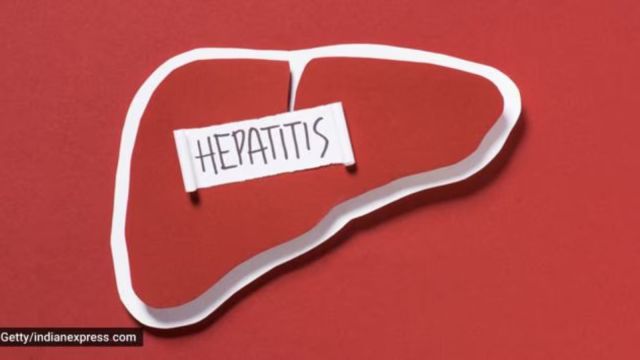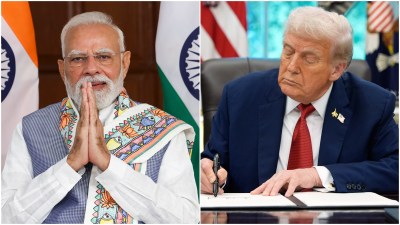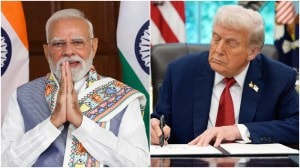Trump questions early use of Hepatitis B vaccine, but here’s why it is non-negotiable at birth
Since affected women may not know they are carriers or not get screened, the vaccination at birth does the gatekeeping
 Hepatitis B is a liver infection caused by the Hepatitis B virus, which can be acute (short-term) or chronic (long-term). (Representational image/File)
Hepatitis B is a liver infection caused by the Hepatitis B virus, which can be acute (short-term) or chronic (long-term). (Representational image/File)US President Donald Trump has advocated delaying the hepatitis B vaccine, which is currently given at birth, among children to later, at age 12. He argued that since hepatitis B was a “sexually transmitted” disease, the wait could be worthwhile. “Hepatitis B is sexually transmitted. There’s no reason to give a baby, that’s almost just born, hepatitis B (vaccine). I would say, wait till the baby is 12 years old and formed and take hepatitis B (vaccine),” Trump said at the press conference.
“In India, we cannot afford to delay the hepatitis B vaccine. It has to be given in the first 24 hours of birth as transmission here is still predominantly by the vertical route, that is mother-to-child. Other modes of transmission are blood transfusion, sexual behaviours and needle-stick injury. A vaccine at birth is the surest way to block mother-to-child transmission of the hepatitis B virus, which otherwise carries a very high risk of leading to cirrhosis, and liver cancer later,” says Dr Piyush Ranjan, senior consultant and co-chairman, department of gastroenterology, Sir Ganga Ram Hospital, New Delhi.
What is Hepatitis B virus?
Hepatitis B is a liver infection caused by the Hepatitis B virus, which can be acute (short-term) or chronic (long-term). It spreads through body fluids like blood and semen. The problem is most people may be carriers and do not have symptoms. Which means they can unknowingly spread the virus to others and continue the silent spread of hepatitis B. For those who are chronically infected but don’t have any symptoms, their liver is silently damaged without them knowing. Untreated, this can lead to serious liver disease.
Why should the vaccination be taken at birth?
That’s because the transmission is preventable only by vaccination at birth. The US Centers for Disease Control (CDC) itself notes that the vaccine is “highly effective in preventing infection,” with studies showing that “immunity persists for at least 30 years among healthy people who initiate Hep B vaccination at less than six months of age.”
In addition, the child must also be given immunoglobulins at birth. Infants have high levels of maternal immunoglobulin G (IgG), which is the main immunoglobulin that crosses the placenta, providing protection against infections the mother has encountered. For infants born to hepatitis B-positive mothers, an additional dose of hepatitis B immunoglobulin (HBIG) is given at birth for targeted protection. Immunoglobulins are present in infants at lower levels and they may not be able to produce significant levels until several months after birth. Hence this additional layer of protection. HBIG is given in conjunction with the hepatitis B vaccine within the first few hours of birth to provide both immediate and long-term protection against the infection.
Should all pregnant women be screened for Hepatitis B?
Yes, all women should be screened for Hepatitis B at the beginning of their pregnancy to prevent mother-to-child transmission. Since affected women may not know they are carriers or not get screened, the vaccination at birth does the gatekeeping. At-birth vaccination of infants increases vaccine coverage and future compliance.
Has vaccination been able to arrest the infection spiral in India?
Hepatitis B vaccine has been included in the Indian vaccination programme and has helped bring down the prevalence of this deadly disease. A study by the Indian Council of Medical research (ICMR) has shown that the Hepatitis B vaccination programme in India, initiated nationwide in 2011-12, has helped reduce hepatitis B infection, with a higher proportion of children born after the vaccine’s introduction showing protective antibody levels and a lower prevalence of past infection. The vaccine is safe.




- 0111 hours ago
- 0211 hours ago
- 031 hour ago
- 0411 hours ago
- 0511 hours ago

























